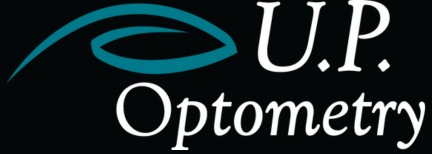
What to Expect
At U.P. Optometry Associates, we provide an array of vision care services. Our office offers a wide selection of eye care products, including eyewear, sunwear, and contact lenses to fit your specific eye care needs. Our mission is to provide quality service and products at reasonable pricing.
The best way to protect your vision is a yearly comprehensive eye exam. When you arrive at our office, you will be greeted with friendly faces. Each eye exam will use the latest state-of-the-art technology to assess your eye health. The doctor will inspect your eyes, answer questions, and discuss your eye care treatment options. In addition to determining your vision prescription, our doctor will test your color vision, depth perception, and check for any early indicators of possible eye conditions such as cataracts, retinal problems, and glaucoma.
Our goal is to have each patient leave satisfied knowing that they are receiving the best eye care products and services possible. We have answered a few frequently asked questions regarding eye exams below.
Why is my personal background important?
In order to better tailor the eye examination to your needs, our doctor may review any current vision problems, your general health, as well as discuss your hobbies and lifestyle requirements.
Why does the doctor ask me, "Which is better, one or two?"
While evaluating your prescription, the doctor will ask you to compare a series of lenses to determine which allows you to see clearer. As the differences become less noticeable, the doctor will be closer to finalizing your prescription. If you’re having a hard time choosing between the options, it means you’re almost done with this part of the exam!
Why is it necessary to know my blood pressure?
In addition to other health concerns, high blood pressure can affect the blood vessels in your eyes, which could lead to future vision problems.
Why am I asked to follow a light with my eyes?
This part of the exam helps determine how your pupils and eye muscles react and assists in gauging neurological function.
Is it necessary for the doctor to dilate my pupils during the exam?
Although pupil dilatation is not always necessary, the doctor may make this decision during your exam. If required, this painless process is like opening a door so the doctor can fully examine your retina. Dilation can assist in detecting diseases such as diabetes, high blood pressure, and macular degeneration.
